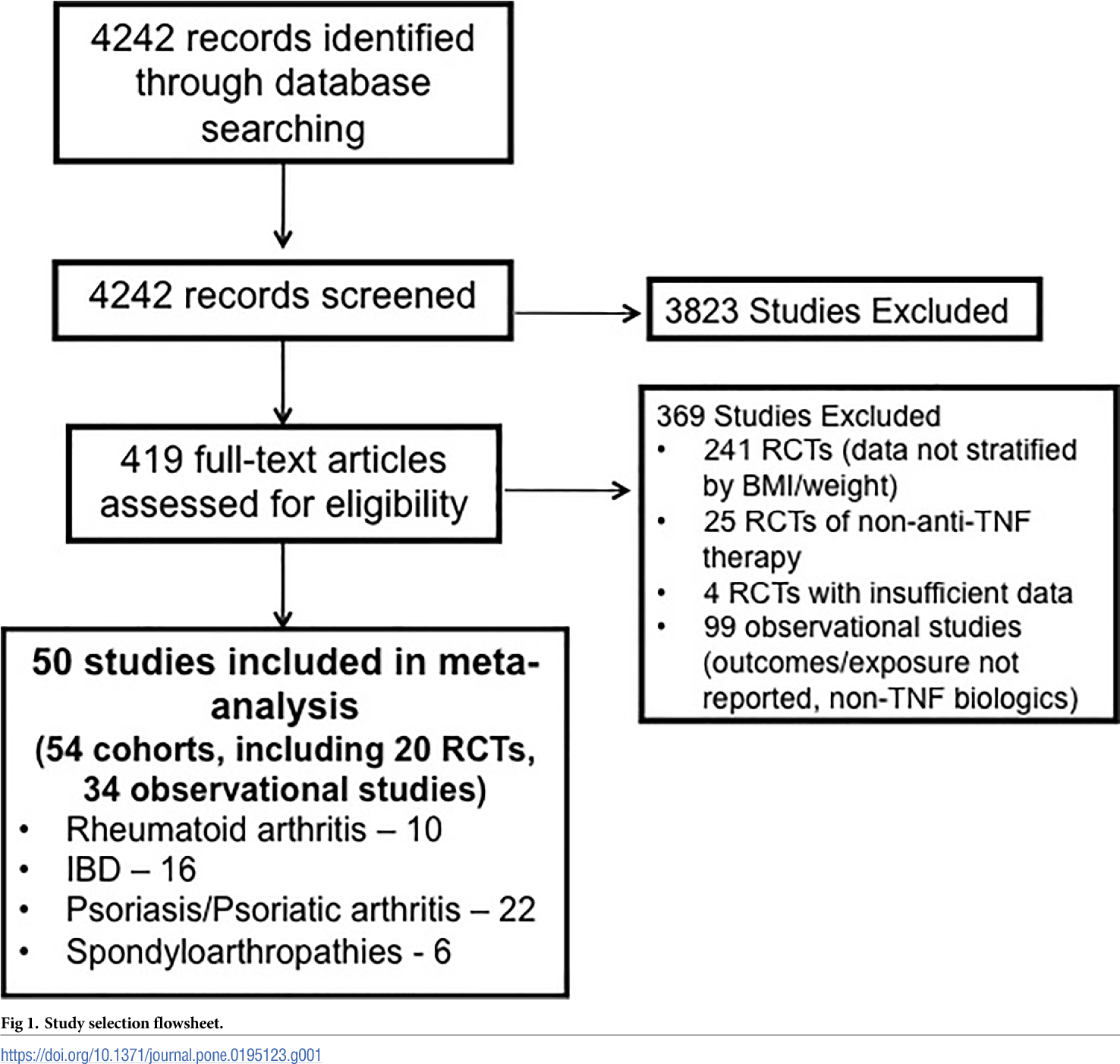
Annals of Pharmacotherapy, Volume 54, Issue 8, Page 729-741, August 2020.
Background: A total of 15% to 40% of adult inflammatory bowel disease (IBD) patients are obese. The influence of obesity on anti-tumor necrosis factor-α (anti-TNF-α) treatment in IBD patients is not consistent. Objective: To determine the association between obesity and the efficacy of anti-TNF treatment in IBD patients. Methods: We performed a systematic search from January 1990 through November 2019 on MEDLINE, Web of Science, Google Scholar, ClinicalTrials.gov, and Cochrane library. We included randomized controlled trials and observational cohort studies that investigated the outcome of anti-TNF treatment in IBD patients with stratification according to body mass index or body weight. The odds ratio (OR) and its 95% CI were calculated. Results: In this pooled meta-analysis, we observed that obesity increased the odds of failure of anti-TNF therapy (OR = 1.195; 95% CI = 1.034-1.380; P = 0.015; I2 = 47.8%). After performing subgroup analyses, obesity was associated with higher odds of anti-TNF treatment failure in ulcerative colitis (UC) patients (OR = 1.413; 95% CI = 1.008-1.980; P = 0.045; I2 = 20.0%) but not in Crohn’s disease patients (OR = 1.099; 95% CI = 0.928-1.300). Obesity significantly increased the odds of treatment failure of both dose-fixed and weight-based anti-TNF agents (OR = 1.121, 95% CI = 1.027-1.224, P = 0.011, and OR = 1.449, 95% CI = 1.006-2.087, P = 0.046, respectively). Conclusion and Relevance: In our meta-analysis, obesity was associated with the inferior response of anti-TNF treatments in UC patients. Clinicians should be aware that obese UC patients may require higher doses in anti-TNF treatment.
Background: A total of 15% to 40% of adult inflammatory bowel disease (IBD) patients are obese. The influence of obesity on anti-tumor necrosis factor-α (anti-TNF-α) treatment in IBD patients is not consistent. Objective: To determine the association between obesity and the efficacy of anti-TNF treatment in IBD patients. Methods: We performed a systematic search from January 1990 through November 2019 on MEDLINE, Web of Science, Google Scholar, ClinicalTrials.gov, and Cochrane library. We included randomized controlled trials and observational cohort studies that investigated the outcome of anti-TNF treatment in IBD patients with stratification according to body mass index or body weight. The odds ratio (OR) and its 95% CI were calculated. Results: In this pooled meta-analysis, we observed that obesity increased the odds of failure of anti-TNF therapy (OR = 1.195; 95% CI = 1.034-1.380; P = 0.015; I2 = 47.8%). After performing subgroup analyses, obesity was associated with higher odds of anti-TNF treatment failure in ulcerative colitis (UC) patients (OR = 1.413; 95% CI = 1.008-1.980; P = 0.045; I2 = 20.0%) but not in Crohn’s disease patients (OR = 1.099; 95% CI = 0.928-1.300). Obesity significantly increased the odds of treatment failure of both dose-fixed and weight-based anti-TNF agents (OR = 1.121, 95% CI = 1.027-1.224, P = 0.011, and OR = 1.449, 95% CI = 1.006-2.087, P = 0.046, respectively). Conclusion and Relevance: In our meta-analysis, obesity was associated with the inferior response of anti-TNF treatments in UC patients. Clinicians should be aware that obese UC patients may require higher doses in anti-TNF treatment.